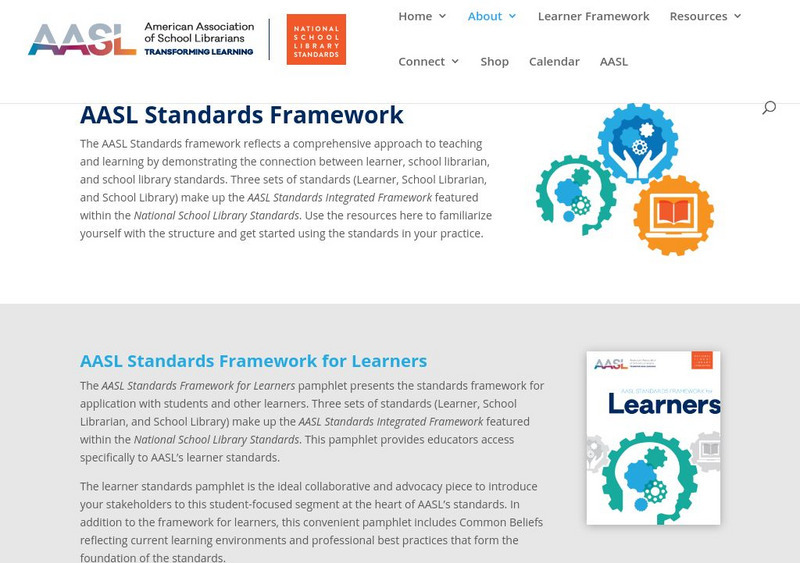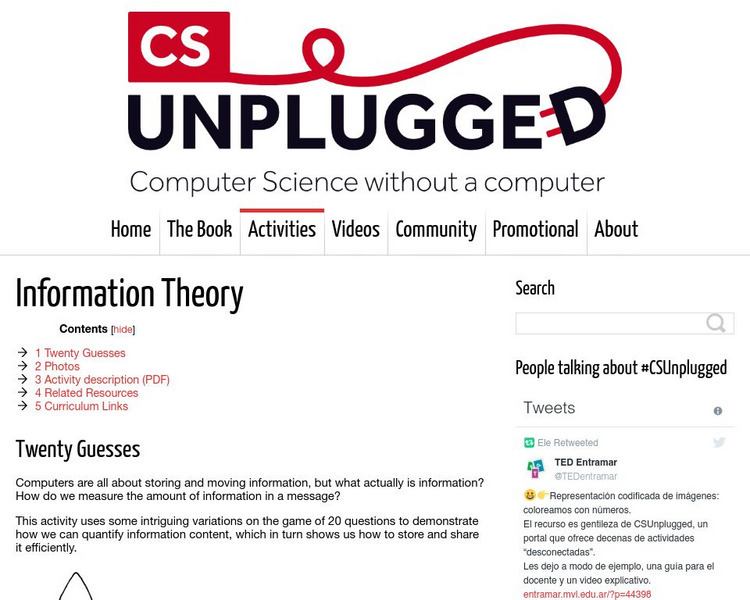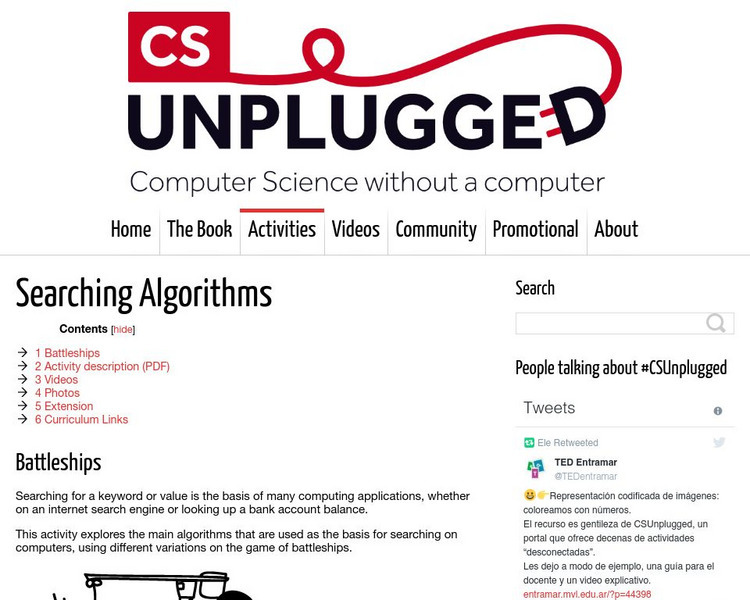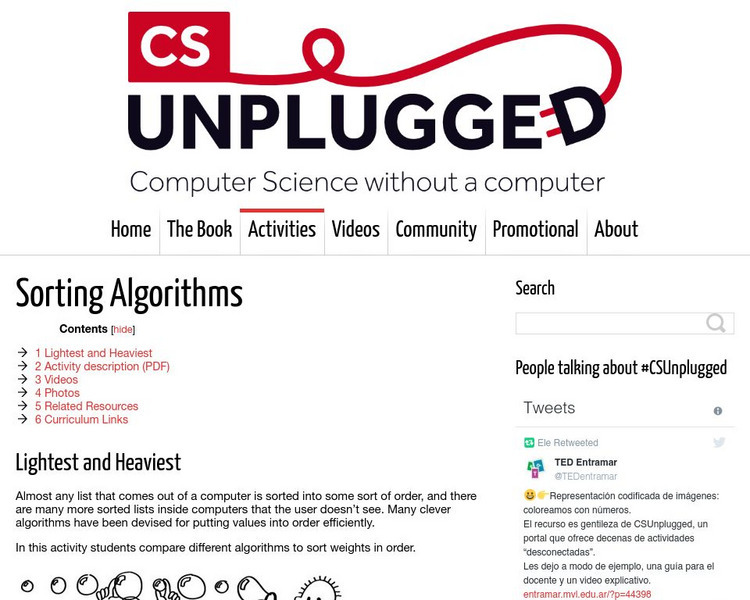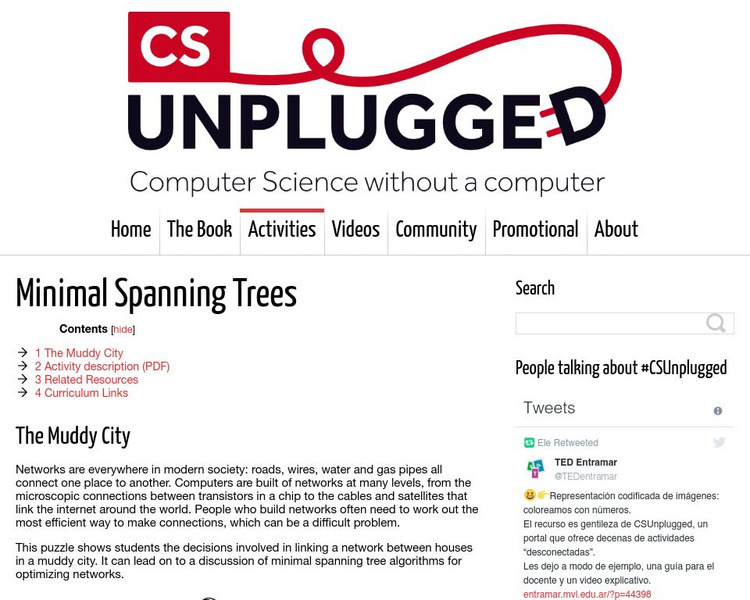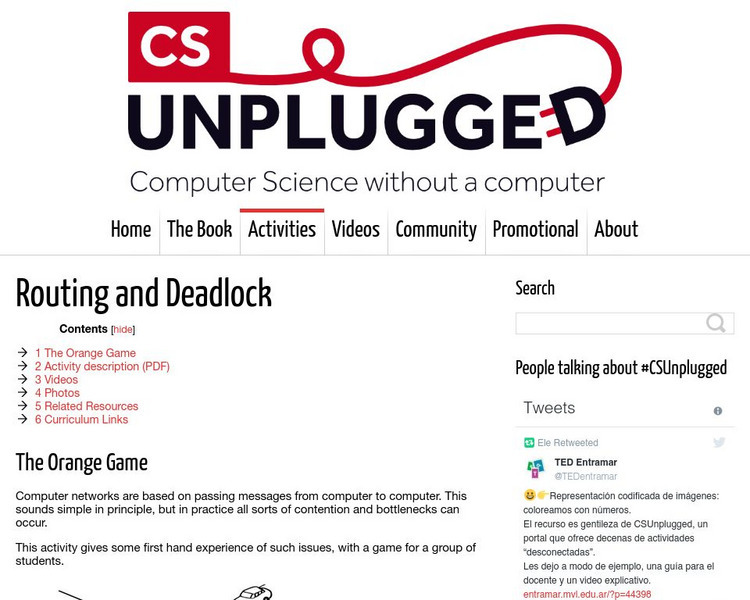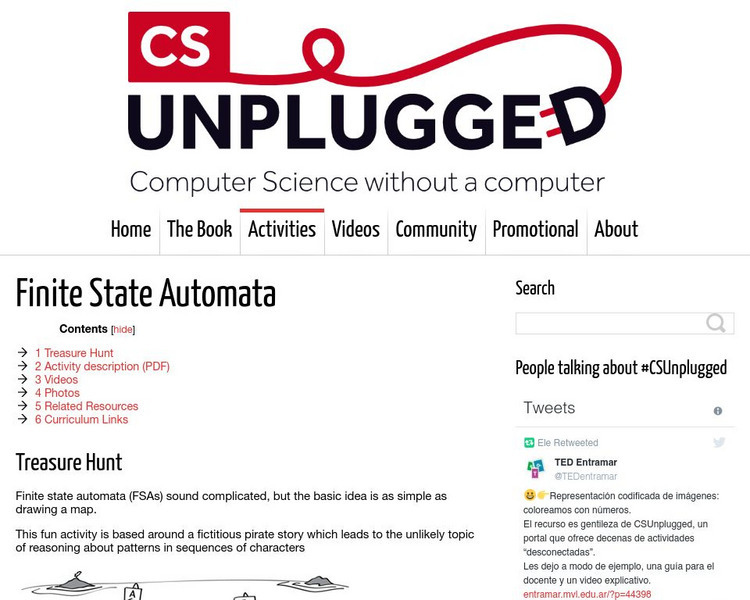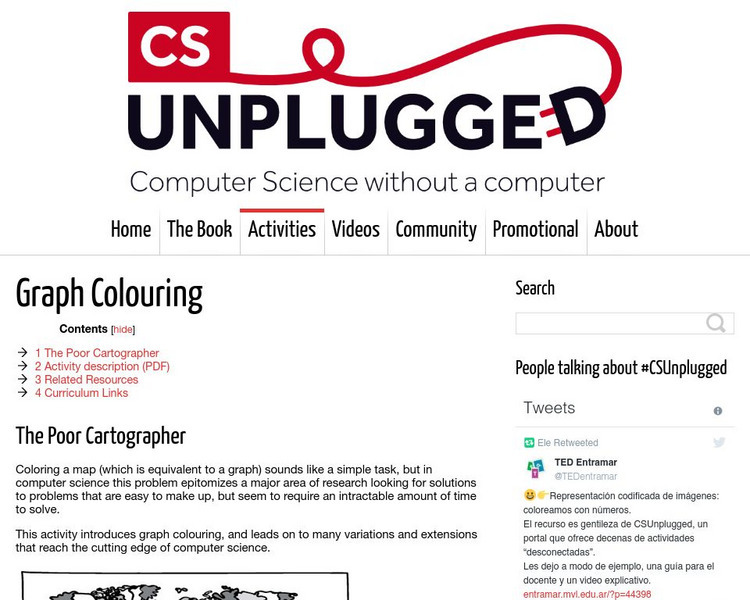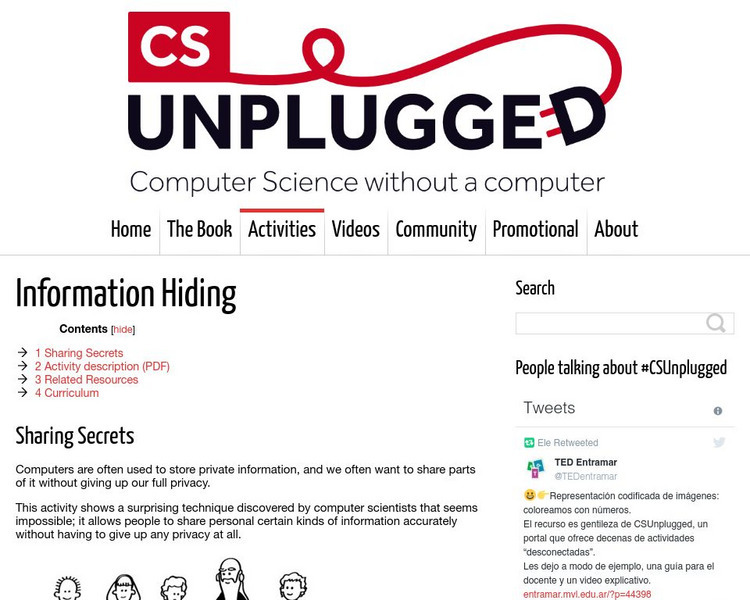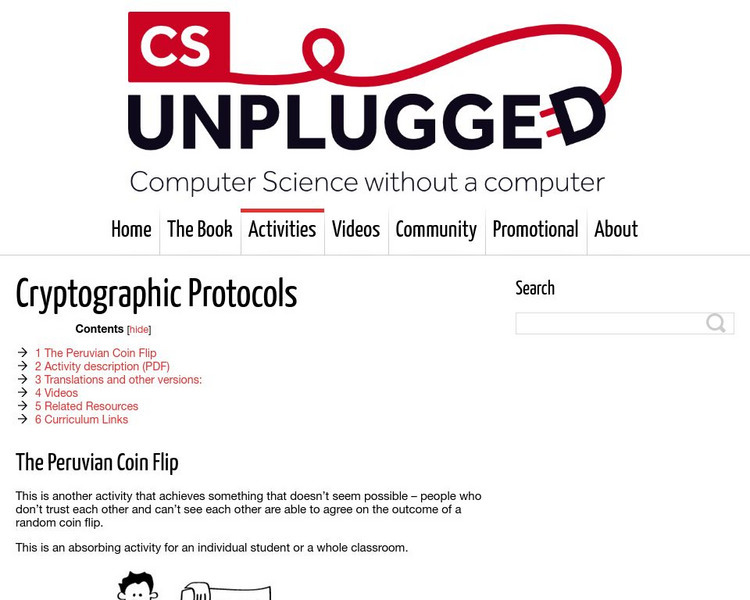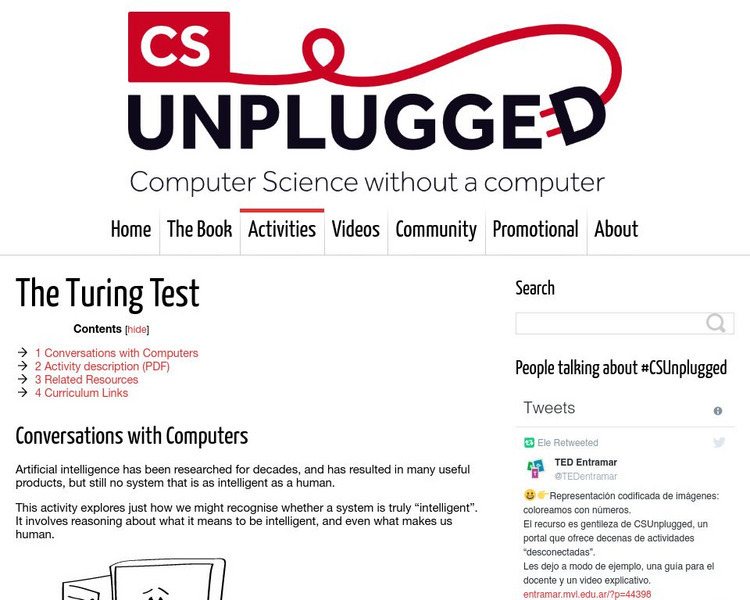New York Times
New York Times: Evaluating Sources in a 'Post Truth' World: Fake News
[Free Registration/Login Required] Need help determining fake news from real news? This seems to be a problem today. Find practical activities and questions to help navigate a media landscape in which it is increasingly difficult to tell...
American Library Association
Aasl: Standards for the 21st Century Learner
This document contains the Standards for the 21st-Century Learner published by the American Library Association. The standards provide a conceptual framework and broad guidelines for describing the information-literate student. These...
Utah Education Network
Uen: I'm So Bright! I Wear My Shades Indoors!
This instructional activity engages students in learning about light through multiple sources. Students will learn how light is produced, reflected, refracted, and separated. Students will communicate their findings through an...
Books in the Classroom
Carol Hurst's Children's Literature Site: Looking Critically at Picture Books
This site describes several ideas and activities to use with picture books and intermediate/middle school age students. Specific title to use are also given.
University of Canterbury
University of Canterbury; Cs Unplugged: Text Compression
Learn how compressed formats such as zip, gzip, or gif images are all based on a method called Ziv-Lempel coding, which turns out to be an interesting exercise in finding patterns in text.
University of Canterbury
University of Canterbury: Cs Unplugged: Information Theory
This activity uses variations on the game of 20 Questions to demonstrate how we can quantify information content, which in turn shows us how to store and share it efficiently when it comes to computer technology.
University of Canterbury
University of Canterbury: Cs Unplugged: Searching Algorithms
Explore the main algorithms that are used as the basis for keyword searching on computers, using different variations on the game of battleships.
University of Canterbury
University of Canterbury: Cs Unplugged: Sorting Algorithms
Many clever algorithms have been devised for sorting values into order efficiently. In this activity students compare different algorithms to sort weights to simulate how computers devise sorted lists.
University of Canterbury
University of Canterbury: Cs Unplugged: Sorting Networks
A student team activity that demonstrates an approach to parallel sorting, or how much computation can be done at the same time. It can be done on paper, but the lesson becomes more meaningful if the students do it on a large scale,...
University of Canterbury
University of Canterbury: Cs Unplugged: Minimal Spanning Trees
This puzzle shows students the decisions involved in linking a network between houses in a muddy city. It can lead on to a discussion of minimal spanning tree algorithms for optimizing networks.
University of Canterbury
University of Canterbury: Cs Unplugged: Routing and Deadlock
Computer networks are based on passing messages from computer to computer. This sounds simple in principle, but in practice all sorts of contention and bottlenecks can occur. This activity gives some first hand experience of such issues,...
University of Canterbury
University of Canterbury: Cs Unpluggeed: Network Protocols
Learners learn what information makes up a protocol for bits of information added to messages to make sure they are sent over the internet.
University of Canterbury
University of Canterbury: Cs Unplugged: Finite State Automata
This student activity is based around a fictitious pirate story which leads to the unlikely topic of reasoning about patterns in sequences of characters. Experiencing this concretely will help lay the foundation for understanding finite...
University of Canterbury
University of Canterbury: Cs Unplugged: Programming Languages
Help build the foundation of understanding computer languages with this activity. Demonstrate some of the issues that arise when we try to give precise instructions to achieve a desired outcome.
University of Canterbury
University of Canterbury: Cs Unplugged: Graph Colouring
Introduce graph coloring, and lead young scholars on to many variations and extensions that reach the cutting edge of computer science.
University of Canterbury
University of Canterbury: Cs Unplugged: Dominating Sets
This activity explores the dominating set problem, and sets it up as the basis for a the public key encryption activity.
University of Canterbury
University of Canterbury: Cs Unplugged: Steiner Trees
Steiner trees are another way to approach finding efficient networks between points. This is another tough problem from computer science, converted into an activity which is easy to explain, with variations suitable for higher-level...
University of Canterbury
University of Canterbury: Cs Unplugged: Information Hiding
This surprising technique discovered by computer scientists that seems impossible allows people to share personal certain kinds of information accurately without having to give up any privacy at all.
University of Canterbury
University of Canterbury: Cs Unplugged: Cryptographic Protocols
This is another activity that achieves something that doesn't seem possible- people who don't trust each other and can't see each other are able to agree on the outcome of a random coin flip.
University of Canterbury
University of Canterbury: Cs Unplugged: Public Key Encryption
This student activity about public key encryption allows learners to simulate encrypt and decrpyt messages without having to share a password to unlock them.
University of Canterbury
University of Canterbury: Cs Unplugged: Human Interface Design
This activity explores just how hard it is to get things right when it comes to designing good interfaces for computers.
University of Canterbury
University of Canterbury: Cs Unplugged: The Turing Test
Explore how we might recognize whether a system is truly intelligent. It involves reasoning about what it means to be intelligent, and even what makes us human.
University of Canterbury
University of Canterbury: Cs Unplugged: Community Activities
A collection of hands-on, physically-active lessons for young scholars ages five to twelve revolving around various computer science concepts.
Other
Media Education Lab: Assignment: Media Literacy: Secondary School
A well-done set of units that helps teachers teach the importance of media literacy to their students. Click on Secondary School Introduction to see a video of teachers in the classroom instructing students in ways of using and...

